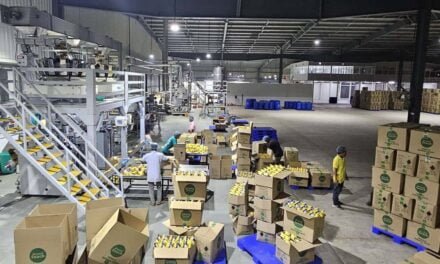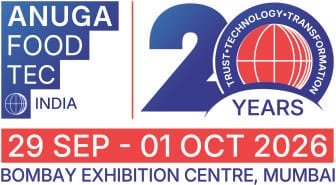The Food Safety and Standards Authority of India (FSSAI) takes the lead to create the foundation for an Atmanirbhar Bharat where the population will be healthy and disease-free. Adopting a 360-degree approach, the food regulator expects to usher in a culture of eating right across the country.
The Prime Minister has emphasized the creation of an Atmanirbhar Bharat. Are we ready? The very foundation of an Atmanirbhar Bharat or self-sufficient India would mean a healthy population. On the one hand, 196 million Indians are undernourished,135 million are overweight/obese. Such conditions put them at risk for non-communicable diseases such as high blood pressure, heart disease, and diabetes. Also, the number of cases of food-borne illnesses is expected to rise from 100 million to 150 – 177 million in 2030 compared to 2011. This will directly impact the ability to absorb nutrients, fight infection, rendering millions vulnerable to a host of diseases.
The COVID-19 pandemic heightened the urgency to strengthen our public health systems. If there is one takeaway from the COVID-19 pandemic it is that the country has to build a healthy India and the only way to do that would be to tackle what has been termed as a far deadlier “silent epidemic”: Malnutrition.
This is where food regulator, Food Safety and Standards Authority of India (FSSAI), plays a critical role. Established under the Food Safety and Standards Act (FSS), 2006, FSSAI is the apex food regulatory body in the country with the mandate to ensure safe and wholesome food for all citizens. As a part of its core regulatory functions, FSSAI sets science-based, globally benchmarked standards for food safety, ensures credible food testing for quality and compliance to these standards and processes through effective surveillance mechanisms.
Apart from this, FSSAI has also embarked on a series of initiatives to ensure safe, healthy, and environmentally sustainable food for everyone through the ‘Eat Right India’ movement. This movement is the collective effort of all key players in the food ecosystem and is aligned with the government’s focus on public health through programmes like Ayushman Bharat Yojana, POSHAN Abhiyaan, Anemia Mukt Bharat, and Swachh Bharat Mission. In the wake of the current COVID-19 pandemic, the provision of safe and healthy food has gained greater prominence.
Under Eat Right India, FSSAI has launched initiatives targeting both food businesses and consumers to create an environment of right food practices and habits. As per the FSS Act, 2006, food businesses are mandated to be licenced/registered with FSSAI. For this, the revised FSS (Licensing & Registration) Regulations simplify the process of application and renewal with reduced time and effort. FSSAI is also releasing new Regulations to facilitate and speed up import clearances.
To strengthen food testing, FSSAI has approved 30 rapid food testing kits/devices to ensure faster, better, and cheaper real-time testing of food even at the field level, thus assuring the quality of food. These recent developments support ease of doing business while raising the bar for food safety in the country. FSSAI is also focusing on periodic risk-based inspections, third-party audits, and focused checks to ensure the safety and quality of food products available in the market to earn the trust of consumers.
| 35527 Schools have been registered on the Eat Right School portal and are in the process of certification. |
| 30 Campuses awarded Eat Right Campus certificates across the country including IIT Gandhinagar, IIT Roorkee, LBSNAA, Mussoorie, and other large private corporates. |
| 20 Clean Street Food Hubs, in different parts of the country. |
| 3 Railways Stations have been awarded as Eat Right Station including Mumbai Central and Chhatrapati Shivaji Station at Mumbai and Anand Vihar Railway Station at New Delhi. |
Arun Singhal, CEO FSSAI, in “Empowering Indian towards a healthy future”, points out that to build the capacity of food businesses on food safety, FSSAI has launched ‘Food Safety Training and Certification’ (FoSTaC) – a unique program to ensure a trained and certified Food Safety Supervisor (FSS) on each food business premises. Almost 3.5 lakhs FSS have been trained so far. FSSAI has recently introduced an online training programme on hygiene practice required during COVID-19, which has already trained over 60 thousand FSS.
Singhal also mentions that given the large unorganized food sector in India comprising a range of food businesses from street food vendors, dhabas, eateries etc. several benchmarking and certification schemes to improve food safety and hygiene standards are in place. These involve training of food handlers and third-party audits of food businesses. Schemes such as Clean Street Food Hub, Clean and Fresh Fruit and Vegetable Markets, Eat Right Station and BHOG (Blissful Hygienic Offering to God) for Places of Worship are targeted to clusters of vendors.
So far, 30 such clusters have been certified, thereby raising the confidence of consumers in consuming food from such places. For individual outlets such as restaurants, catering establishments, sweet and meat shops the Hygiene Rating Scheme has been introduced. Over a thousand food outlets have been rated so far to empower consumers to make informed food choices.
As for adulteration, Singhal mentions ways to empower consumers. FSSAI, he writes, has introduced The DART Book to check common food adulterants at home with simple tests. A mobile food testing van called Food Safety on Wheels (FSW) has been launched to reach remote areas and conduct training and awareness activities as well. Over 90FSWs are in circulation across the country. More recently, the Food Authority has introduced two new parameters in the honey standards to determine the adulteration of honey with any other sugar syrups, especially rice syrup, which is a common concern for many.
FSSAI has launched mass awareness campaigns to reduce salt, fat and sugar in the diet, “Aaj Se Thoda Kam” and Trans-Fat Free India by 2022 to reduce the risk of non-communicable diseases. Going forward, consumers will be empowered to make healthy choices under the new voluntary Regulations on menu labelling that require bigger foodservice establishments to declare nutrition information of food per serving.
Large-scale food fortification is also being promoted to address deficiencies of vitamins and minerals like iron, Vitamin B 12, Folic Acid, which lead to conditions like iron-deficiency anemia. So far, fortified foods such as edible oil, milk, wheat flour, rice, and salt, with the +F logo to identify them, are being supplied in the open market and some Government Safety Net Programmes like ICDS, MDM, and PDS in 19 States and 5 UTs.
So far,157 fortified products are available in the open market and 47 percent of the top ten players in edible oil and 36.6 percent of the organized milk industry are fortifying as per FSSAI standards. Another important regulation to boost fortification of food will now cover standards for fortification of species identified milk like a cow, buffalo, camel, goat, sheep, etc; for all kinds of multigrain atta and categories of processed foods covering cereal products, bakery wares, and juices – with various specified micronutrients, except in products that are high in fat, salt, and sugar.
Targeting consumers in different environments — schools, workplaces, education institutes, hospitals, etc. — Eat Right School and Eat Right Campus have been launched. Under these initiatives, certification is awarded based on compliance to predefined benchmarks on the provision of safe, healthy and sustainable diets in these environments. So far, 35,527 schools registered under Eat Right School and 28 campuses have been awarded ‘Eat Right Campus’. Certification.
Moreover, the Food Authority has recently finalised FSS (Safe Food and Healthy Diets for School Children) Regulations, 2019 that will ensure wholesome food to school children by not allowing food items high in fat, salt, and sugar to be sold and advertised within school premises and within 50 metres radius of the school gates. Additionally, keeping the health of infants in mind, the FSS (Food for Infant Nutrition) Regulations 2019 have been finalised that cover standard for infant milk food and formula as well as foods for special medical purposes, specifical food for infants with inborn errors in metabolism (IEM).
Singhal goes on to inform about the manner to reach citizens at the grassroots’ level through frontline health workers to promote the right eating habits, the Eat Right Toolkit has been developed. This is being mainstreamed through Health and Wellness Centres under Ayushman Bharat Yojana. FSSAI also releases “Myth Busters” and “Guidance Notes” for consumers from time to time to address any growing concerns related to food and clarify misconceptions at large. Recently, an e-guidebook on “Eating Right During COVID-19” was released to inform consumers on additional health and safety precautions to follow for food. With time, this 360 degree approach is expected to usher in a culture of eating right across the country.
To encourage and support sustainable food practices to protect the environment, FSSAI is spearheading initiatives such as Jaivik Bharat for easy identification of authentic organic food; Save Food, Share Food to reduce food waste and promote food donation; Safe and Sustainable Packaging in Food and Beverage Sector to reduce the use of plastics and Repurpose Used Cooking Oil (RUCO) for safe and healthy use of cooking oil and repurposing used cooking oil to make biodiesel/soap etc. At present, 82 food distribution agencies have donated over 50 million meals to those in need in over 100 districts. Around 55 lakh litres of UCO has been repurposed into 39 lakh litres biodiesel.
“The ‘Eat Right India‘ movement initiated by FSSAI has gone a long way in creating awareness amongst people about eating safe, healthy and sustainably. The program has been designed in a manner that it can be adopted at every level combining various methods for engaging people, such as Swasth Bharat Yatra: A Pan-India Cyclothon; Eat Right Melas in various parts of the country and utilizing other online mediums etc. Today, we see clusters of street vendors across the country, campuses certified as Eat Right Campuses and foodservice establishments such as restaurants, catering establishments, sweet and meat shops rated under the Hygiene Rating scheme.
All these efforts are leading to the creation of a new ecosystem where people are taking charge of their health wherever they go. This is also generating economic opportunities in the food ecosystem through increased demand for trained food testing and regulatory personnel, training, auditing, implementation and development partners, petty food vendors and small businesses. Eat Right India is ultimately a people’s movement. Therefore, it puts an onus on everyone to transform the way India eats and usher in a culture of right eating. Eat Right India is ultimately a people’s movement. Therefore, it puts an onus on everyone to transform the way India eats and usher in a culture of right eating”.
Photo by jcomp / Freepik
















